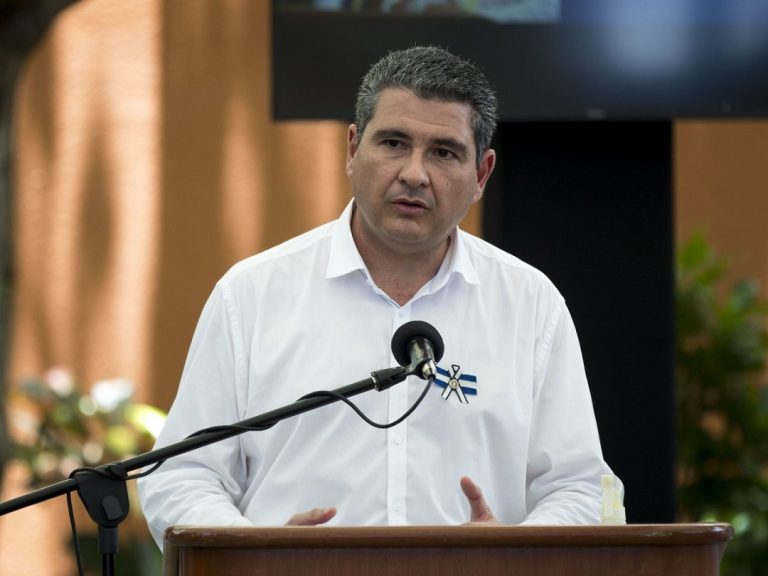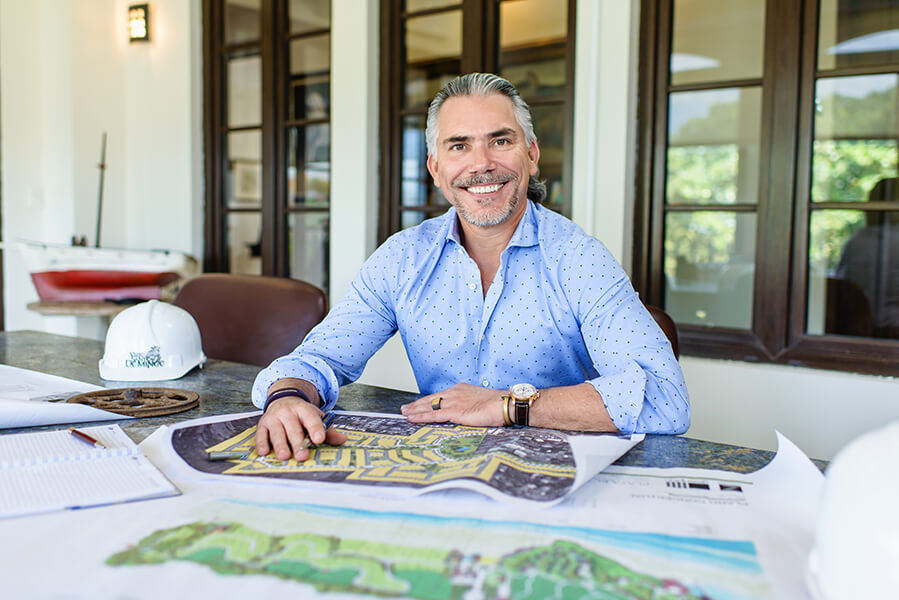28 de junio 2023

Children of Exile: The Births “Sowing Hope” in the Camp of Nicaraguan Farmers

PUBLICIDAD 1M
PUBLICIDAD 4D
PUBLICIDAD 5D
“Investors see that that they’re not only confiscating those involved in politics or the NGOs, but they’re attacking company owners as well.”

Juan Sebastián Chamorro, exdirector de Funides y exprecandidato presidencial. Foto: EFE
The illegal confiscation of Nicaraguan business magnate Piero Coen Ubilla, president of Grupo Coen [Coen Group], will have “negative repercussions on the small, medium and large private business sector and on the national economy,” economist Juan Sebastian Chamorro believes. Chamorro is the former director of Funides [an independent Nicaraguan think tank, now shuttered by the Ortega government] and a past presidential hopeful.
He is also a former political prisoner who spent nearly 600 days in the infamous El Chipote jail. Today, Chamorro believes that the regime’s confiscation of one of the country’s principal business owners is an act of political revenge for Coen’s outspoken stance during the 2018 protests. However, it also “forms part of Ortega’s absolutist political project to control the economic power of the private sector.”
“Sometimes, business owners tend to view the political word as separate from the economic sphere; as long as they’re able to conduct business, there’s nothing important to worry about. But here they’re seeing that this isn’t just a matter of a repression centered on people engaged in politics or the NGOs, but they [the Ortega regime] are also attacking company owners. It’s an attack on free enterprise,” Chamorro noted.
The confiscation of properties, which is forbidden by the Nicaraguan Constitution, up until now had focused on three private media outlets, dozens of properties belonging to non-governmental organizations, and the farm belonging to the family of Michael Healy, former president of the large business association Cosep. However, this Friday [June 23] the illegal confiscation of Piero Coen Ubilla was made known. Coen was one of the country’s most prominent large business owners. What does this new confiscation signify?
It signals the advance of Daniel Ortega’s totalitarian project to control all possible power in Nicaragua. Ortega’s absolutist strategy is advancing. First: taking over all the political powers, with the elimination of the political parties, the attack on the Catholic Church, the destruction of the NGOs – closing over 3,000 of them – control of all the City Halls, and the elimination of all types of civil participation. Now, what’s left him to conquer is the economic power of the private sector. What we’re seeing is the consolidation of this absolutist project. He wants to get his hands on the private sector and he’s doing that, feeding the project with hate speech against the business owners, the rich, and a discourse [of class hatred] to his grassroots supporters, trying to justify these illegal actions.
The economic power that the company owners have is significant: 80% of Nicaragua’s total production is in the hands of the private sector – not only the country’s large business owners, but the entirety of the private sector, including small, medium and large companies who are the country’s chief employers. It’s no coincidence that they’re confiscating Piero Coen at this time; through the franchises that remain under their power, the Coen Group controls the bulk of the flow of economic resources from family remittances – perhaps 80% of the remittances that enter the country – and these are not only significant, but they also increased 60% last year.
Up until now, Piero Coen states: “I haven’t received any notification, nor been made aware of any court sentence.” But apparently, there was either a secret trial or they simply used the de facto route to seize all his properties and shares in societies in the name of the government. Do you think this confiscation is a political act of personal vengeance against Piero Coen, or does it also threaten the companies in [the Coen] group, which are very diverse, and include agricultural companies and real estate businesses?
I believe there’s a little of both. Certainly, Piero (Coen) took a particularly marked position in 2018, with a very strong discourse at that time. They’re making him pay the bill for that, but I believe this also forms part of a broader project, an absolutist project that involves trying to take away from the business owners the economic power that they still have. This seizure goes beyond a political push to make him pay. It’s beginning with the Coen Group, but I wouldn’t discount the possibility that other actions against other sectors are currently being undertaken.
For example, it’s interesting to note that, curiously, in these days the official media has issued a press note involving a supposedly new business in Managua’s Oriental Market, one very similar to what PriceSmart sells. This at a time when we already know that both PriceSmart and Walmart are having serious difficulties with tax harassment. Now the Assistant Mayor of Managua has come out praising a private sector that is allied with his political project. We must look at this from a much more sinister angle. Basically, it’s the continuation of a project. Their unofficial spokesperson (William) Grigsby also said this recently, by asserting the Nicaragua is going to become a Marxist-Lenist country. All this is part of an orchestrated plan to gain absolute control over the means of production.

What impact does this confiscation have on the national and international private business sector?The investment sector, those who are still contemplating having a presence in the country, and others who are already present?
In the first place, it’s a terrible signal for any businessperson that the government is arbitrarily confiscating a company owner who has interests in agro-industy, cattle raising, the free trade zone, the financial sector. This has the investors I’ve spoken with in the last few days very concerned about what’s going on in Nicaragua and the arbitrary way it’s happening. At times, company owners tend to view the political world as separate from the economic one, and as long as they can conduct their business, nothing of concern is happening. But here we’re seeing that this isn’t just a matter of repression expressed as the confiscation of people involved in politics or the NGOs, but that they’re also attacking the large business owners.
This will have serious consequences on future investment and on disinvestment. Large businesses are going to decide to sell some of their shares, given this environment where there’s no legal security. That problem is going to grow, because we can well imagine a large capitalist in (Central America) or in the United States seeing on their social media the videos of police patrols invading the home of a large businessperson. Obviously, they put themselves in [Coen’s] shoes and say: “This isn’t a safe place to invest.”
The reaction from the business sector has been silence. It’s true that all of the business associations have been closed down, but we’ve tried to speak with the principal business owners in the country, and there are no reactions. Nonetheless, anonymously, there’s a general reaction of repudiation of this confiscation of Piero Coen.
That fear, that silence, is general across Nicaraguan society. When the level of repression reaches the level it’s currently at, people don’t want to talk about political topics, even with their own family members. Obviously, this is especially true for company owners, who have so much to lose. It’s natural and to be expected that the most they’ll offer you are anonymous statements, because if they make anything public, the next day Nicaragua’s tax office will be on them – that’s part of the repressive plan. Now [the Ortega regime] is putting their hands on that power that they still haven’t been able to eliminate, because Nicaragua is still an economy where the private sector is functioning. And by private sector, I repeat, I’m not speaking about five or six large magnates, but of thousands of small entrepreneurs who begin with a stall in the market, and progress from a municipality to a very large company.
This is an attack on free enterprise, this is an attack on the system of trade and capitalism that must exist in any economy, in order to be able to develop. What Ortega wants to do here is to transform this into a State-controlled project where the government, or his family and his inner circle, have greater participation in the means of production, utilizing blackmail, fiscal harassment and any other kind of action that allows him to gain control over the means of production, in order to take over more power.
There’s very strong pressure being exerted by the tax office (Direccion General de Ingresos) and the Customs Agency on the import companies. We’re already seeing the shortages in PriceSmart. Is this confiscation a political operation to bring the private sector to its knees through an extortion scheme, or does it perhaps have some economic aim? Can Daniel Ortega’s private business group and the State substitute for the private economic sector?
I believe that Ortega is trying to give more economic power and company shares to his cronies and his family members, and I wouldn’t discount the possibility that this pressure could also be aimed at getting his hands on the franchise for remittances that the Coen Group controls. Given their interest in having economic power, this could then be a way to begin gaining ground over the traditional private sector, in this case in favor of his family members and cronies. And there’s also, let’s not overlook it, a political vengeance behind all this, but I believe that you must frame it within a broader project of eliminating sources of power, and as your own source of power gain the economic capacity to transfer remittances from a country. That’s a source of economic power that’s very valuable in this case, and I’m sure Ortega is also interested in getting his hands on it. Ortega understood the private sector as something more general than simply five large owners, they’re trying to reduce the power that the large business sector can have in Nicaragua.
The economic projections of the Economist Intelligence Unit foresee a mediocre growth rate of 1.5% for Nicaragua, continuing over the next 2, 3, and 4 years. What incidence could this change in the political and economic scheme have on these growth projections?
It should have some, because when you alter the business climate of a country, like they’re doing here, with an illegal brutality like that of the confiscation of an important economic group, you have a reduction in the flow of investment. You can even see greater capital drain, as business people decide it would be better to liquidate their shares, given an atmosphere that’s very insecure. Certainly, not investing or reinvesting in an industrial plant or in existing businesses, but taking out money and reducing the investments instead, are measures that don’t become visible until they show up in the economic growth of future years, because the investment of today begins to perform the following year, or the following two, three or four years. So definitely, that already mediocre path of economic growth that the Economist Intelligence Unit predicted should be revised downwards. No reason occurs to me why it should be revised upwards, since this is a terrible news for the investors of the country.
PUBLICIDAD 3M
Periodista nicaragüense, exiliado en Costa Rica. Fundador y director de Confidencial y Esta Semana. Miembro del Consejo Rector de la Fundación Gabo. Ha sido Knight Fellow en la Universidad de Stanford (1997-1998) y profesor visitante en la Maestría de Periodismo de la Universidad de Berkeley, California (1998-1999). En mayo 2009, obtuvo el Premio a la Libertad de Expresión en Iberoamérica, de Casa América Cataluña (España). En octubre de 2010 recibió el Premio Maria Moors Cabot de la Escuela de Periodismo de la Universidad de Columbia en Nueva York. En 2021 obtuvo el Premio Ortega y Gasset por su trayectoria periodística.
PUBLICIDAD 3D